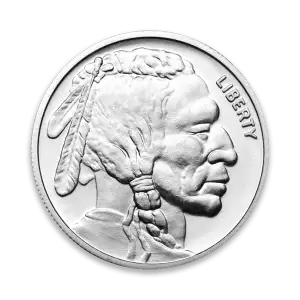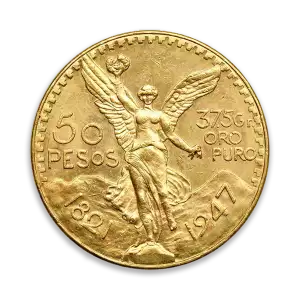The U.S. Financial Strategy: Exploitation or Preparation?
Introduction: Is the U.S. Playing the Game or Being Played?
The recent economic policies of the United States have raised a critical question: is the U.S. mismanaging its financial system, or is it strategically positioning itself for the next global monetary order? With record-high national debt, inflationary pressures, and a shifting geopolitical landscape, the U.S. appears to be balancing short-term exploitation of its reserve currency status with long-term preparation for an inevitable monetary transition.
Some argue that the country’s reckless monetary policies signal incompetence, but others believe that policymakers are deliberately leveraging their advantage while planning for a controlled transition. With the largest gold reserves in the world, dominance in global financial markets, and continued military influence, is the U.S. setting the stage for a future monetary reset on its own terms?
1. Strategic Leverage: The Power of the U.S. Dollar and Gold
Historically, the U.S. has enjoyed an unparalleled advantage in global finance:
- The dollar is the world’s reserve currency, meaning foreign governments must hold and transact in dollars for international trade.
- The petrodollar system ensures continued demand for U.S. currency in energy markets.
- The Federal Reserve controls interest rates and liquidity, allowing it to manage global financial flows.
- The U.S. holds the largest gold reserves in the world, giving it a potential hedge in case of a monetary crisis.
If the U.S. truly faced an uncontrolled financial collapse, why has it not sold significant portions of its gold holdings? This suggests that policymakers understand the long game and are holding onto hard assets in case they need to shift to a new system.
Choice 1: Exploit the System While It Lasts
- Continue issuing debt with the assumption that the world will continue buying U.S. bonds.
- Inflate away liabilities while ensuring the public remains dependent on fiat currency.
- Use financial dominance to exert control over global trade partners.
Choice 2: Prepare for a New System
- Accumulate strategic assets like gold and Bitcoin as future financial anchors.
- Slowly weaken the dollar to make a transition into a new system more manageable.
- Introduce Central Bank Digital Currencies (CBDCs) or a new asset-backed currency to reset the financial system on U.S. terms.
Game Theory Prediction: The U.S. will continue to exploit its advantages until an external force—such as China, Russia, or a financial crisis—forces it to transition.
2. Debt as a Weapon: The Strategy Behind Fiscal Recklessness
With the national debt exceeding $36 trillion, conventional wisdom suggests the U.S. is in unsustainable financial territory. However, if viewed strategically, the debt may serve as a tool rather than a burden.
- Debt and inflation erode the real value of obligations—making it easier for the U.S. to manage its liabilities.
- Low interest rates allow continuous refinancing—extending the timeline before a debt crisis occurs.
- Foreign nations holding U.S. debt (such as China) are incentivized to support the system—as a sudden collapse would also harm them.
Scenario 1: The U.S. Loses Control (Crisis Scenario)
- Interest rates rise dramatically, causing the government to default on debt payments.
- Hyperinflation weakens the dollar, leading to economic and political instability.
- Foreign nations dump U.S. bonds, triggering a flight from the dollar.
Scenario 2: The U.S. Transitions Strategically
- Debt is gradually inflated away while gold reserves are retained for a reset.
- A new digital or gold-backed currency is introduced to prevent a catastrophic collapse.
- U.S. financial elites ensure that the transition benefits them while the public absorbs the economic pain.
Game Theory Prediction: The U.S. will likely allow inflation to erode debt obligations and attempt to shift into a more controlled economic system before losing total control.
3. Military and Geopolitical Control Over Currency
Throughout history, reserve currency status has been tied to military dominance:
- The British pound collapsed after World War II due to the decline of the British Empire.
- The U.S. dollar became the global standard due to American post-war military and economic superiority.
- The petrodollar system has been enforced through military interventions in the Middle East.
Current U.S. Geopolitical Strategy:
- Sanctions and financial warfare force countries to continue using the dollar.
- Military bases in key trade regions help maintain control over energy and commodities.
- Proxy conflicts with China and Russia weaken economic rivals and prevent a coordinated financial challenge to the U.S.
Threats to U.S. Control:
- China’s Belt and Road Initiative seeks to create an alternative global financial network.
- Russia and BRICS+ are developing new non-dollar trade agreements.
- The decline of U.S. manufacturing reduces domestic economic strength.
Game Theory Prediction: The U.S. will continue leveraging its military, trade agreements, and sanctions to slow down de-dollarization while it prepares an alternative system for itself.
4. The Endgame: A U.S.-Controlled Monetary Reset?
History suggests that all reserve currencies eventually lose dominance—but how that transition occurs determines whether the issuing nation retains power or collapses.
Winning Scenario for the U.S.:
- A controlled transition to a new monetary system (CBDCs, gold-backed currency, or a U.S.-led multi-currency system).
- Accumulation of hard assets while inflating away fiat obligations.
- Leverage over international finance maintained through Wall Street, technology, and strategic partnerships.
Losing Scenario for the U.S.:
- A rapid loss of faith in the dollar, causing hyperinflation and capital flight.
- Foreign nations successfully develop an alternative system before the U.S. can shift on its own terms.
- A global economic crisis weakens U.S. financial institutions, leading to reduced global influence.
Game Theory Prediction: The U.S. is likely to delay collapse as long as possible while positioning itself for a new financial order that it still controls.
Conclusion: Strategic Mismanagement or Calculated Transition?
The evidence suggests that the U.S. is not simply mismanaging its financial system but rather engaging in a long-term strategy to exploit the current system before transitioning to a new one.
Short-Term Strategy:
Continue using debt, inflation, and military leverage to maintain dominance.
Medium-Term Strategy:
Delay foreign-led de-dollarization while accumulating gold and strategic assets.
Long-Term Strategy:
Implement a monetary reset under U.S. control before being forced into an unfavorable global transition.
Final Question: Who Will Control the Next Financial System?
Will the U.S. successfully lead the transition to a new monetary order, or will foreign powers force a transition on their terms? The answer depends on whether the U.S. can outmaneuver its geopolitical and economic rivals while preventing a crisis that spins out of control.












